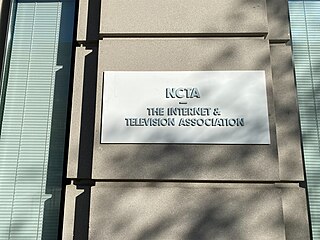Related Research Articles

Communications in Hong Kong includes a wide-ranging and sophisticated network of radio, television, telephone, Internet, and related online services, reflecting Hong Kong's thriving commerce and international importance.

West Plains is a city in, and the county seat of Howell County, Missouri, United States. The population was 12,184 at the 2020 census.
Astroturfing is the practice of masking the sponsors of a message or organization to make it appear as though it originates from and is supported by grassroots participants. It is a practice intended to give the statements or organizations credibility by withholding information about the source's financial connection. The term astroturfing is derived from AstroTurf, a brand of synthetic carpeting designed to resemble natural grass, as a play on the word "grassroots". The implication behind the use of the term is that instead of a "true" or "natural" grassroots effort behind the activity in question, there is a "fake" or "artificial" appearance of support.

Altice USA, Inc., commonly known as Altice, is an American cable television provider with headquarters in New York City. It delivers pay television, Internet access, telephone services, and original television content to approximately 4.9 million residential and business customers in 21 states.
Charter Communications, Inc., is an American telecommunications and mass media company with services branded as Spectrum. With over 32 million customers in 41 states, it is the second-largest cable operator in the United States by subscribers, just behind Comcast, and the third-largest pay TV operator behind Comcast and AT&T. Charter is the fifth-largest telephone provider based on number of residential lines.
Spectrum is the trade name of Charter Communications, which is widely used by market consumers and commercial cable television channels, internet, telephone, and wireless service providers.
The Center for Individual Freedom (CFIF) is an Alexandria, Virginia based U.S. nonprofit conservative policy advocacy and astroturfing organization. It was founded in 1998 by former tobacco industry executives who sought to counter government restrictions on smoking.
Municipal broadband is broadband Internet access owned by public entities. Services are often provided either fully or partially by local governments to residents within certain areas or jurisdictions. Common connection technologies include unlicensed wireless, licensed wireless, and fiber optic cable. Many cities that previously deployed Wi-Fi based solutions, like Comcast and Charter Spectrum, are switching to municipal broadband. Municipal fiber-to-the-home networks are becoming more prominent because of increased demand for modern audio and video applications, which are increasing bandwidth requirements by 40% per year. Supporters of municipal broadband argue that when cities create their own internet and broadband, customers ultimately get faster internet speeds, lower prices, and better customer service than from internet service providers. The purpose of municipal broadband is to provide internet access to those who cannot afford internet from internet service providers and local governments are increasingly investing in said services for their communities.

NCTA – The Internet & Television Association is the principal trade association for the U.S. broadband and pay television industries. It represents more than 90% of the U.S. cable market, more than 200 cable networks, and equipment suppliers and providers of other services to the cable industry.

RCN Corporation, originally Residential Communications Network, founded in 1993 and based in Princeton, New Jersey, was the first American facilities-based ("overbuild") provider of bundled telephone, cable television, and internet service delivered over its own fiber-optic local network as well as dialup and DSL Internet service to consumers in the Boston, Chicago, Los Angeles, New York City, the Lehigh Valley in eastern Pennsylvania, and Washington, D.C. areas.

Breezeline is the trade name for the United States operations of Cogeco Communications, constituting the 8th largest cable operator in the United States, based on the number of television service customers served. The company currently provides TV, Internet and phone services using a combined coaxial cable & fiber-to-the-premises (FTTP) network. Breezeline currently has approximately 707,000 broadband customers located in twelve states: New Hampshire, Maine, Connecticut, New York, Pennsylvania, Delaware, Maryland, Ohio, West Virginia, Virginia, South Carolina, and Florida. The company is headquartered in Quincy, Massachusetts.

The Internet in the United States grew out of the ARPANET, a network sponsored by the Advanced Research Projects Agency of the U.S. Department of Defense during the 1960s. The Internet in the United States in turn provided the foundation for the worldwide Internet of today.

The internet is an important contributor to Ireland's economy and education. The telecommunications infrastructure in Ireland provides Internet access to businesses and home users in various forms, including fibre, cable, DSL, wireless, Fixed Wireless and mobile. In 2019, 91% of households have access to the Internet in Ireland at home, with 88% of individuals reporting that they had used the internet in the three months prior to interview.

Grande Communications Networks, LLC is an American telecommunications company, based in San Marcos, Texas, that uses a fiber optic and cable network to offer broadband services. The company was established in 1999 when it was the recipient of the largest round of venture capital funding in Texas. Grande delivers internet access, local and long-distance telephone service and digital cable over its own network to nine different markets in Texas. Grande Communications serves as the primary provider of cable services for dormitories on the campuses of Texas State University, University of the Incarnate Word, Baylor University and the University of Texas at Austin. It is controlled by private equity firm TPG Capital through its affiliate Patriot Media Consulting. Grande Communications is available to an estimated 1.1 million people, making it the 16th largest provider of cable broadband in the U.S. by coverage area.
The internet in Cuba covers telecommunications in Cuba including the Cuban grassroots wireless community network and Internet censorship in Cuba.

Julius Genachowski is an American lawyer and businessman. He became the Federal Communications Commission Chairman on June 29, 2009. On March 22, 2013, he announced he would be leaving the FCC in the coming weeks. On January 6, 2014, it was announced that Genachowski had joined The Carlyle Group.

LUS Fiber is a municipally owned subsidiary of Lafayette Utilities System, providing cable television, broadband Internet and telephone services to the citizens of Lafayette, Louisiana. It is notable for being the first municipally owned company providing Fiber-To-The-Home services in the U.S. state of Louisiana, and one of the first municipally owned FTTH companies in the country.

Verizon Fios is a bundled internet access, telephone, and television service provided by Verizon Communications that operates over a fiber optical network within the United States.
Cobridge Communications was a cable television, high-speed internet, and digital telephone service provider.
Fight for the Future is a nonprofit advocacy group in the area of digital rights founded in 2011. The group aims to promote causes related to copyright legislation, as well as online privacy and censorship through the use of the Internet.
References
- ↑ "Fidelity Communications Co., Inc.: Private Company Information - Bloomberg". www.bloomberg.com. Retrieved 2018-02-07.
- ↑ "Of course a mystery website attacking city-run broadband was run by an ISP. Of course" . Retrieved 2018-02-07.
- 1 2 "Cable operator Fidelity Communications admits it that secretly created the fake-grassroots "Stop City-Funded Internet" campaign to kill Missouri municipal net / Boing Boing". boingboing.net. Retrieved 2018-02-08.
- ↑ Isaac Protiva (January 31, 2018). Proof that Fidelity Communications is behind the Stop City Funded Internet campaign (Video). Retrieved March 10, 2018.
- ↑ "Stop City-Funded Internet". Archived from the original on January 29, 2018. Retrieved March 10, 2018.
- 1 2 Einenkel, Walter. "It turns out the Missouri grassroots "Stop City-Funded Internet" movement was a cable monopoly". Daily Kos. Retrieved March 10, 2018.